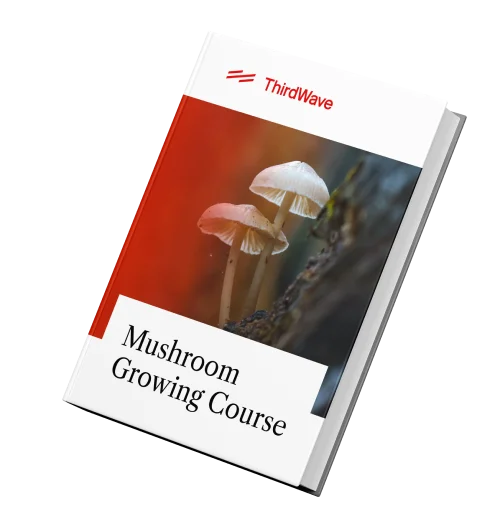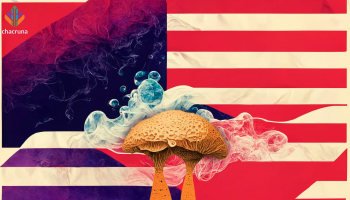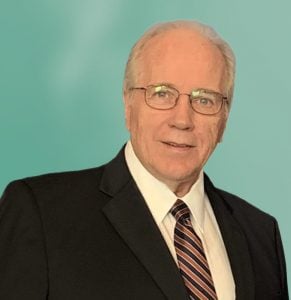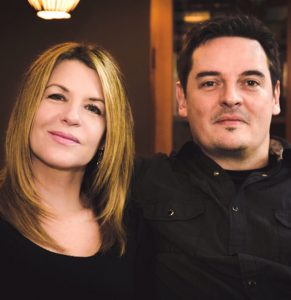Disclaimer: Psychedelics are largely illegal substances, and we do not encourage or condone their use where it is against the law. However, we accept that illegal drug use occurs and believe that offering responsible harm reduction information is imperative to keeping people safe. For that reason, this article is designed to enhance the safety of those who decide to work with psychedelics.
If July’s only notable psychedelic contribution was Michael Pollan’s How to Change Your Mind documentary, it would’ve been a good month for advocates. But it turns out the world wasn’t waiting on Pollan’s next award-winning prose on the power of entheogens to advance the cause. This month, state and federal leaders took bold steps toward systemizing psychedelics access through proposed bills, amendments, and ballot measures. Additionally, researchers continued publishing valuable studies on microdosing and ketamine to add to the breadth of groundbreaking research. Let’s review the top psychedelics news stories for July 2022.
Ketamine Telemedicine May be Just as Effective as In-office Infusions
Ketamine therapy is a relatively new protocol for people suffering from treatment-resistant depression and anxiety. But as experimental therapy, ketamine is not covered by insurance. With a $500-plus price tag for one IV infusion, the current cost model excludes most people who need it the most. To combat this access issue, providers like Mindbloom offer at-home telemedicine using sublingual ketamine. While more affordable, this lower-dose approach has left many wondering if remote ketamine therapy could be as effective as an in-clinic model. A prospective ketamine study published in the Journal of Affective Disorders shows preliminary evidence that it could be. Of 1,247 KAT outpatients that received four weeks of therapy, 62.8% reported a significant improvement in depression, and 62.9% reported an improvement in generalized anxiety. More than 30% achieved remission in both groups, and only two people reported adverse effects. The results aligned with inpatient KAT outcomes for moderate depression–highlighting the incredible potential to expand ketamine therapy access to countless people in need.
New Senate Bill Seeks to Guarantee Psychedelics Access for the Terminally Ill
Democratic senator, Cory Booker, and Republican Rand Paul collaborated on a new version of the “Right to Try” bill, guaranteeing terminally ill patients access to experimental psychedelic therapies. Called the “Right to Try Clarification Act,” the new law seeks to amend the limitations of the existing “Right to Try Act,” which notoriously excludes patients from utilizing investigational drugs that are also Schedule 1 controlled substances. This revised language states that the DEA must allow dying patients to use Schedule 1 substances, like MDMA and psilocybin, once they’ve completed phase 1 clinical trials. “As a physician, I know how important Right to Try is for patients facing a life-threatening condition.” Paul said in a statement. “Unfortunately, the federal bureaucracy continues to block patients seeking to use Schedule I drugs under Right to Try. I’m proud to lead this bipartisan legislation with Sen. Booker that will get government out of the way and give doctors more resources to help patients.”
Grow 1 Year's Worth of Microdoses in Just 6 Weeks
Third Wave partnered with top mycologists to create the world’s easiest and best mushroom growing program (kit, course, and expert support).
- Pre-sterilized and sealed
(ready to use out of the box) - Step-by-step video and text course
- Access to growing expert in community
- Make your first harvest in 4-6 weeks
- Average yield is 1 - 4 ounces (28-108g)
- Fits in a drawer or closet
- Enter info for Third Wave discounts:


Grow 1 Year's Worth of Microdoses in Just 6 Weeks
Third Wave partnered with top mycologists to create the world’s easiest and best mushroom growing program (kit, course, and expert support).
- Pre-sterilized and sealed
(ready to use out of the box) - Step-by-step video and text course
- Access to experts in community
- Make your first harvest in 4-6 weeks
- Average yield is 1 - 4 ounces (28-108g)
- Fits in a drawer or closet
- Enter info for Third Wave discounts
Psilocybin Microdosing Study Finds Mental and Physical Health Benefits
The world’s largest peer-reviewed microdosing study just published in Scientific Reports found that psilocybin microdosers report general mood improvements across all ages, genders, and mental health statuses. To determine the results, the study compared 953 microdosers to 180 non-microdosers through baseline and follow-up assessments after about 30 days. The assessments asked about psychedelic practices, mood, and mental health while testing cognitive and psychomotor processing through the finger tapping test. The results found that microdosers systematically reported greater mental health benefits than non-microdosers. Interestingly, the study also found a unique advantage for older microdosers–showing psychomotor improvements in participants over 55. Additionally, those who stacked their protocol with lion’s mane and niacin saw even more significant effects. These findings add depth and novelty to today’s emerging range of pre-clinical microdosing research.
House Approves Marijuana And Psychedelics Research Amendments for Veterans
In another sign that the tide is turning toward psychedelic acceptance, the House of Represented just added various bipartisan psychedelic research amendments to the National Defense Authorization Act (NDAA). One amendment, introduced by Republican Rep. Dan Crenshaw, would allow the secretary of defense to approve grants to research psilocybin, MDMA, and ibogaine’s therapeutic potential for military members with PTSD. Another amendment, sponsored by Democrat Rep. Alexandria Ocasio-Cortez, would promote psilocybin, MDMA, and marijuana research as opioid alternatives for veterans suffering from PTSD, traumatic brain injuries, and severe pain. Finally, House members also passed a measure that would force the Department of Defenses to study the discriminatory practices of marijuana laws and how to mitigate future risks. These historic amendments kick-start a lengthy floor process to approve the NDAA before it moves to the Senate.
Grow 1 Year's Worth of Microdoses in Just 6 Weeks
Third Wave partnered with top mycologists to create the world’s easiest and best mushroom growing program (kit, course, and expert support).
- Pre-sterilized and sealed
(ready to use out of the box) - Step-by-step video and text course
- Access to growing expert in community
- Make your first harvest in 4-6 weeks
- Average yield is 1 - 4 ounces (28-108g)
- Fits in a drawer or closet
- Enter info for Third Wave discounts:


Grow 1 Year's Worth of Microdoses in Just 6 Weeks
Third Wave partnered with top mycologists to create the world’s easiest and best mushroom growing program (kit, course, and expert support).
- Pre-sterilized and sealed
(ready to use out of the box) - Step-by-step video and text course
- Access to experts in community
- Make your first harvest in 4-6 weeks
- Average yield is 1 - 4 ounces (28-108g)
- Fits in a drawer or closet
- Enter info for Third Wave discounts
Colorado’s Psychedelic Measure Qualifies For the November Ballot
Colorado is on track to follow Oregon as the second state to codify psilocybin use within its borders. However, unlike Oregon, whose flagship program is non-medical, Colorado’s measure proposes creating psilocybin healing centers for therapeutic purposes only. The bill’s language does not include recreational psychedelic sales. However, it does contain provisions to legalize possession, use, cultivation, and sharing of psilocybin, ibogaine, DMT, and non-peyote-derived mescaline. The announcement comes less than a month after activists handed in 100,000 signatures to qualify the “Natural Medicine Health Act” for November’s Ballot. That means, by the end of the year Coloradoans will decide their place in today’s psychedelic renaissance.
July marked another memorable month toward progressing the psychedelic mission. We look forward to continuously updating you with the latest, high-quality news surrounding plant medicines, clinical developments, education, and more. Did you enjoy this article? Let us know! See something missing? We’ll consider adding it. Contact us today.






